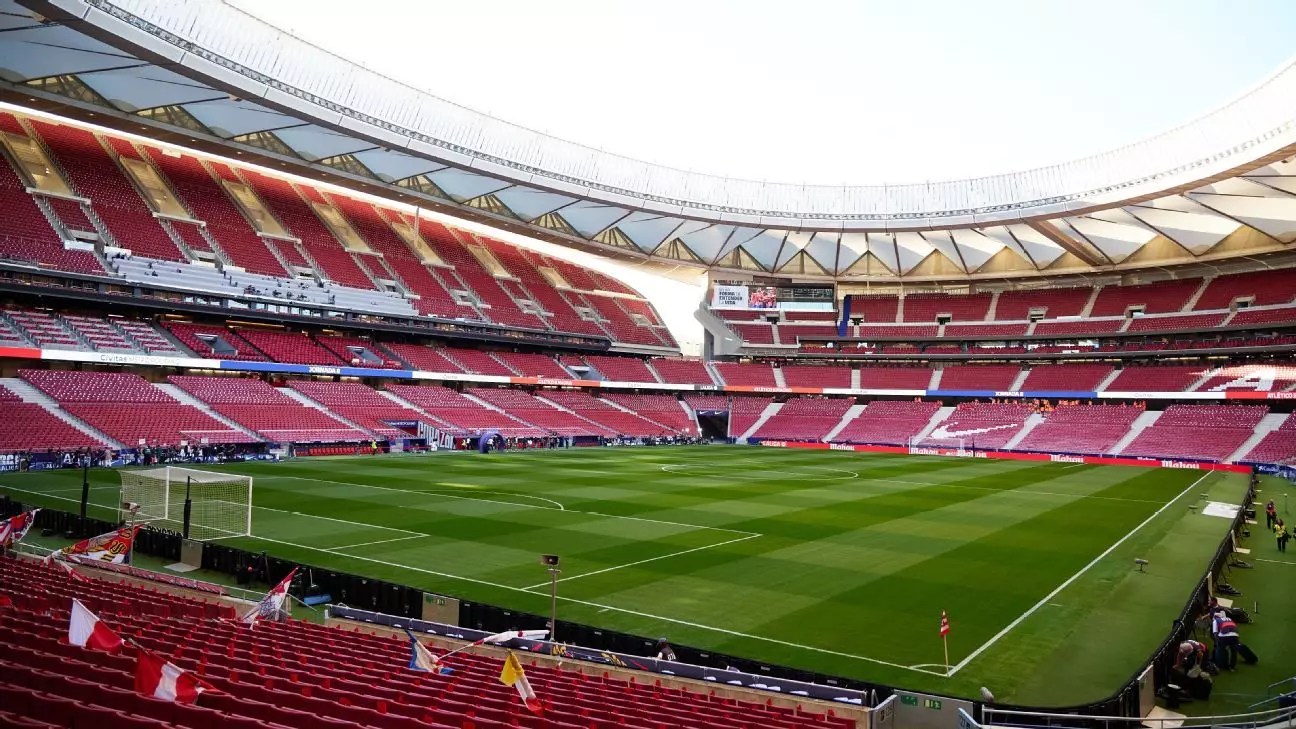In an era where sports teams increasingly serve as platforms for international branding and cultural exchange, Saudi Arabia has taken significant steps to position itself prominently on the global stage. By acquiring the naming rights to Atlético Madrid’s stadium for the next nine years, the Saudi state-owned Riyadh Air has not only stamped its presence on one of the most recognized football clubs in the world, but also reinforced its broader ambitions in sports and entertainment as part of its Vision 2030 initiative. This move highlights the intersection of sports, politics, and economic strategies in an age where branding extends far beyond traditional boundaries.
The agreement between Atlético Madrid and Riyadh Air marks the third change in naming rights for the Metropolitano stadium since its inception in 2017. Initially launched with a partnership with a Chinese real estate firm, the arena later transitioned to a sponsorship deal with a Spanish developer before the current arrangement. The club has not disclosed the financial particulars of this latest deal; however, it solidifies Riyadh Air as Atlético’s most substantial sponsor to date, dwarfed only by the existing shirt sponsorship deal worth approximately €40 million annually.
These sponsorship deals are more than just financial transactions; they are strategic investments aimed at altering perceptions and cultivating a new narrative. The shift from localized to international sponsorship aligns with Atlético’s objectives to expand its global footprint, especially within markets that are becoming increasingly important to the football ecosystem.
Saudi Arabia’s Vision 2030: A Broader Context
The partnership with Atlético Madrid dovetails seamlessly with Saudi Arabia’s Vision 2030, a comprehensive strategy led by Crown Prince Mohammed bin Salman to diversify the economy away from oil dependency. Hosting the 2034 World Cup—an event that appears highly likely given that Saudi Arabia is the sole candidate—falls squarely within this vision. The initiative highlights sports as a vehicle for change, inviting increased tourism, foreign investment, and a transformation of societal norms.
However, this ambitious vision is not without controversy. Critics have highlighted concerns regarding human rights violations that have marred the country’s efforts. Allegations involving severe abuses of migrant workers, including complaints of wage theft affecting thousands, underscore the tensions surrounding Saudi Arabia’s rapid modernization narrative. As international scrutiny intensifies, especially in the lead-up to high-profile sporting events, the kingdom’s attempts at sports diplomacy may face significant challenges.
The alliance extends beyond mere financial implications. Atlético Madrid’s CEO, Miguel Ángel Gil Marin, is a board member of the European Club Association, a critical stakeholder in forthcoming FIFA negotiations about the World Cup scheduling. This connection signifies a concerted effort by Saudi Arabia to embed itself in the crucial narrative shaping international football, potentially influencing logistics and outcomes at the heart of this global sporting event.
Similarly, other clubs are also recognizing the potential that comes with aligning themselves with Saudi investments. For instance, AS Roma has featured the Riyadh Season logo on its jerseys, showcasing Saudi Arabia’s burgeoning role in global sports branding sphere while also promoting its diverse entertainment offerings. Such partnerships could pave the way for a more profound Saudi influence across European football, creating a considerable footprint in a traditionally Western-dominated sports arena.
Saudi Arabia’s strategic investments in sports sponsorship, exemplified by the deal with Atlético Madrid, serve dual purposes: promoting a more modern image on the global stage while bolstering its economic diversification goals. Nonetheless, the kingdom must navigate a complex web of international perception, human rights issues, and the politics of sport. The effectiveness of these endeavors will ultimately hinge on transparent practices and genuine engagement with diverse stakeholders.
As the landscape of sports continues to evolve, the blending of economic aspirations and cultural diplomacy will remain a critical theme. The developments unfolding today will undoubtedly shape the narrative of sports and international relations in the years to come, with Saudi Arabia poised to play a pivotal role in this dynamic arena.


Leave a Reply